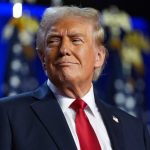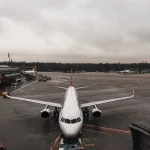US President Donald J. Trump has announced that China can now resume purchasing oil from Iran and expressed hope that Beijing would also buy significant volumes from the United States.
Taking to social media platform Truth Social, Trump wrote: “China can now continue to purchase Oil from Iran. Hopefully, they will be purchasing plenty from the U.S., also. It was my Great Honor to make this happen!”
In a separate post, Trump commented on his upcoming participation at the NATO summit, contrasting the expected calm in Europe with the recent volatile situation in West Asia: “Heading to NATO where, at worst, it will be a much calmer period than what I just went through with Israel and Iran. I look forward to seeing all of my very good European friends, and others. Hopefully, much will be accomplished!”
Trump travels to Europe carrying the weight of a fragile ceasefire agreement between Israel and Iran–one he helped broker and sees as evidence of his ability to lead global diplomacy, according to CNN. The agreement was secured after intense back-and-forth at the White House. However, just hours before the ceasefire was scheduled to take effect, Israel accused Iran of firing missiles and pledged retaliation “with force,” CNN reported. Iran denied violating the truce.
Frustrated by the apparent breakdown, Trump lashed out before leaving for the Netherlands, saying: “We basically have two countries that have been fighting so long and so hard that they don’t know what the f** they’re doing.”* He also directed blame at Israel: “As soon as we made the deal, they came out and dropped a load of bombs, the likes of which I’ve never seen before,” he said.
According to CNN, Trump later called Israeli Prime Minister Benjamin Netanyahu from Air Force One and took an “exceptionally firm and direct” tone. He followed up with another Truth Social post: “All planes will turn around and head home, while doing a friendly ‘Plane Wave’ to Iran. Nobody will be hurt, the Ceasefire is in effect!”
Behind the scenes, the US-brokered ceasefire was facilitated with help from Qatar. According to Reuters, Qatar’s Prime Minister Sheikh Mohammed bin Abdulrahman Al Thani played a key role in getting Tehran’s approval for the agreement after a call with Iranian officials. The outreach followed a conversation between Trump and Qatar’s Emir, where Trump relayed that Israel had accepted the terms and requested Doha’s assistance in convincing Iran.
Despite the agreement, hostilities resumed shortly after. According to The Times of Israel, Iran fired missiles into southern Israel, killing four people in Beersheba and injuring several others in a residential building strike.
The current crisis dates back to June 13, when Israel initiated “Operation Rising Lion”, targeting Iranian military and nuclear infrastructure. In retaliation, Iran launched “Operation True Promise 3”, a coordinated drone and missile assault targeting Israeli fuel and energy facilities.
The US soon intervened with “Operation Midnight Hammer,” launching precision strikes on three Iranian nuclear sites. In response, Iran attacked American military installations in Qatar and Iraq, including the Al Udeid Air Base–the largest US base in the region.
Further escalating the tension, The Times of Israel reported that after Iran fired two ballistic missiles at Israel, the Israeli Air Force struck a radar installation north of Tehran. The retaliatory strike was limited after a phone call between Trump and Netanyahu. During the conversation, both leaders agreed that only a “symbolic” strike would be carried out to avoid further escalation. Trump had earlier posted: “Do not drop those bombs. If you do it is a major violation. Bring your pilots home, now.”
Most Israeli jets were recalled, with only the radar facility being hit. The original scope of Israel’s planned offensive remains unclear. (ANI)








